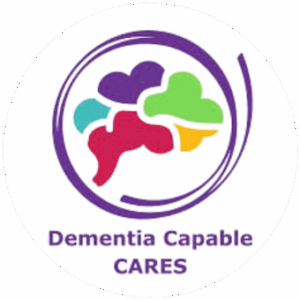Professional caregivers in a community like Raleigh are compassionate individuals who look after those unable to care for themselves, including the elderly, disabled, and those with chronic illnesses. Although being a caregiver is a noble and rewarding career, the job also comes with various physical and emotional challenges.
If you are presently employed as a professional caregiver, you fully understand how physically and emotionally demanding the daily rigors can be. What follows are signs of compassion fatigue to look for, along with several self-care tips every caregiver should know.
Professional Caregivers in Raleigh Face These Challenges
The physical demands of being a caregiver can be significant. Caregivers may be required to lift and move patients, assist with personal care, and perform housekeeping tasks. These activities can strain the average caregiver’s body and lead to physical injuries such as back pain, muscle strains, and repetitive motion injuries.
The mental challenges of caregiving can also be substantial. Caregivers may feel overwhelmed by the job responsibilities, especially when caring for multiple individuals. They may also experience emotional stress, such as feelings of sadness, frustration, or guilt. Caregivers may also struggle with balancing their needs with the needs of those they are caring for.
In addition to the physical and mental challenges, caregivers may experience financial strain. Many caregivers are underpaid and may not receive benefits like health insurance or paid time off. These challenges can lead to financial stress and make it difficult for caregivers to address their own needs.
As a professional caregiver, you have dedicated yourself to providing compassionate care to those in need. Whether you work in a hospital, residential care facility, or other healthcare setting, you are responsible for your charges’ physical and emotional well-being. However, it is common to neglect your needs while caring for others. Finding a healthy balance between self-care and compassion is crucial to prevent burnout and compassion fatigue.
What is Compassion Fatigue?
Being constantly exposed to the suffering of others can be emotionally draining. Compassion fatigue is a state of emotional exhaustion and burnout that can occur in caregivers who regularly work with individuals who are suffering. When not properly addressed, compassion fatigue can cause negative feelings like sadness, hopelessness, and a lack of empathy.
In addition to the emotional toll, it can also lead to physical symptoms such as headaches, nausea, and insomnia. Even worse, compassion fatigue can keep you from providing quality care to your patients.
What is Self-Care?
Self-care is the practice of taking care of your own physical and mental health. As a caregiver, it is easy to put the needs of your patients first and forget about your own needs. However, neglecting self-care can lead to burnout, physical and mental exhaustion, and even illness.
Self-care includes exercise, healthy eating, getting enough sleep, and taking breaks. As a caregiver, it is essential to prioritize self-care to maintain your health and well-being.
How to Balance Self-Care and Compassion
It’s often difficult for professional caregivers to balance self-care and compassion. However, it is important to prioritize self-care to prevent burnout and compassion fatigue. While doing so, you must also maintain a compassionate attitude towards your charges and their families.
Here are five tips for balancing self-care and compassion:
1. Prioritize self-care: Make time for activities that promote your own physical and mental health, such as exercise, meditation, eating right, spending time with loved ones, or doing fun activities and hobbies.
2. Set healthy boundaries: It is important to set boundaries in your work life to prevent burnout. This approach may include setting limits on the number of hours you work, taking breaks throughout the day, or delegating tasks to others when possible.
3. Practice mindfulness: Being present in the moment and practicing mindfulness can help you maintain a compassionate attitude towards your patients while prioritizing your needs.
4. Seek support: Talk to coworkers, friends, or family members about your experiences as a caregiver so they can offer emotional support and help you cope with the challenges of the job.
5. Take time off: Taking time off also helps prevent burnout and compassion fatigue. Use your vacation time or take a personal day to recharge and focus on self-care.
The Benefits of Balancing Self-Care and Compassion
Balancing self-care and compassion can lead to numerous benefits for professional caregivers. By prioritizing self-care, you can improve your own physical and mental health, which may lead to increased job satisfaction and better patient outcomes. Maintaining a compassionate attitude towards those under your care can also lead to improved patient outcomes, as people are more likely to respond positively to caregivers who show empathy and understanding.
Balancing self-care and compassion can also help prevent burnout and compassion fatigue, which can help you maintain your passion for the job and continue providing quality care to those in need.
What Does it All Mean for You?
As a professional caregiver, it is crucial to balance self-care and compassion. Neglecting self-care can lead to burnout and compassion fatigue, which can diminish your ability to provide quality patient care.
Prioritizing self-care, setting healthy boundaries, practicing mindfulness, seeking support, and taking time off are all vital for balancing self-care and compassion. Maintaining a compassionate attitude towards your patients while caring for yourself is a win-win situation as you improve your well-being and provide quality care to those in need.
Sometimes, all it takes to stay recharged as a caregiver is switching from one care setting to another, for instance, from a hospital to senior home care.
Time for a Change? Join Our Winning Team in Raleigh Today!
If you’re ready for a fresh new career challenge in the rapidly growing senior home care industry, HomeChoice Home Care Solutions in Raleigh would love to hear from you. Due to our expanding client load, we are currently seeking qualified individuals to fill several exciting caregiving positions. While proudly serving communities in Durham, Wake County, Johnston County, Wake Forest, and Chapel Hill, North Carolina, we support clients and their families with services that include Companionship Care, Personal Care, and Respite Care.
As a highly valued member of the HomeChoice Home Care Solutions team, you’ll enjoy a fast-paced, positive work environment where your input is valued and hard work rewarded. We also offer competitive pay, flexible scheduling, ongoing staff training, and career advancement opportunities galore. No matter your experience level or education, we’d love to hear from you! To learn more about our agency and our open positions, please visit us today at www.homechoicehomecare.com.














